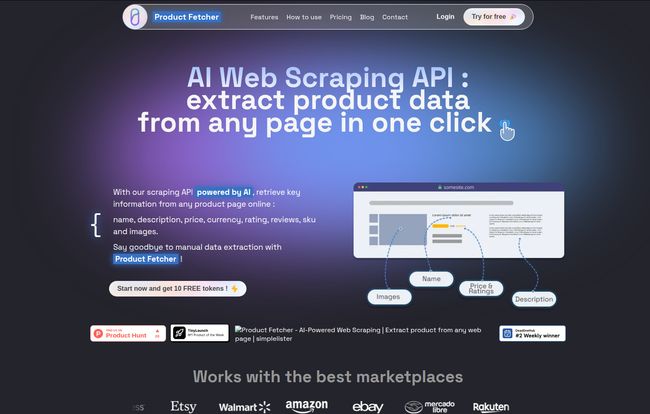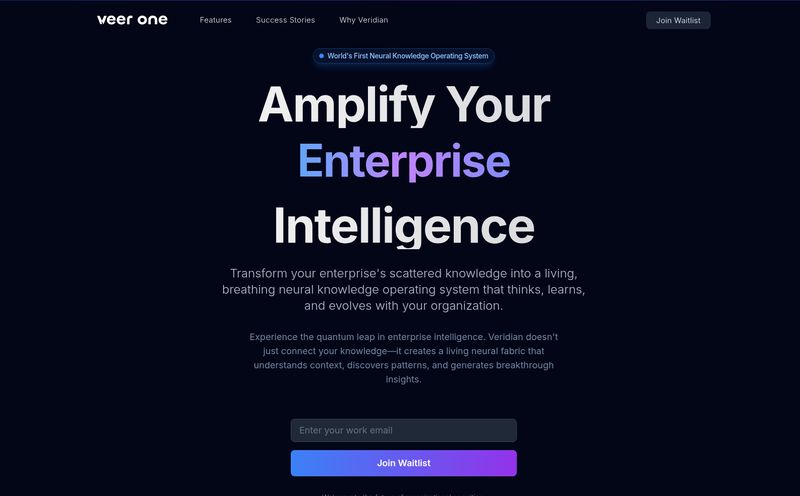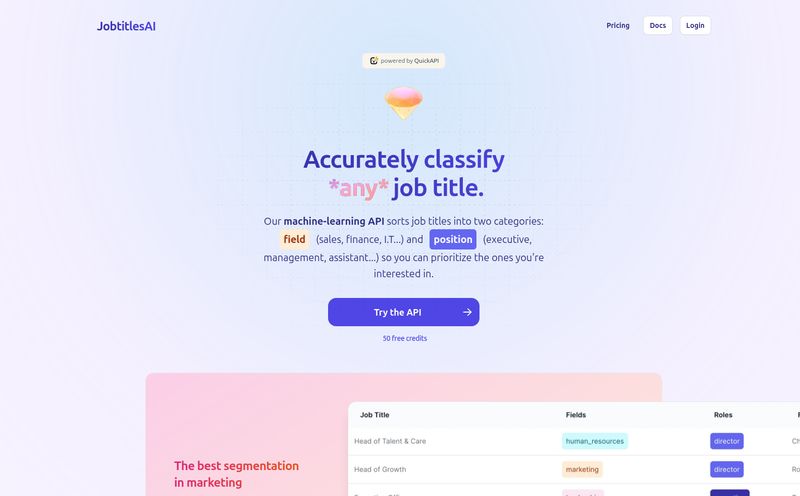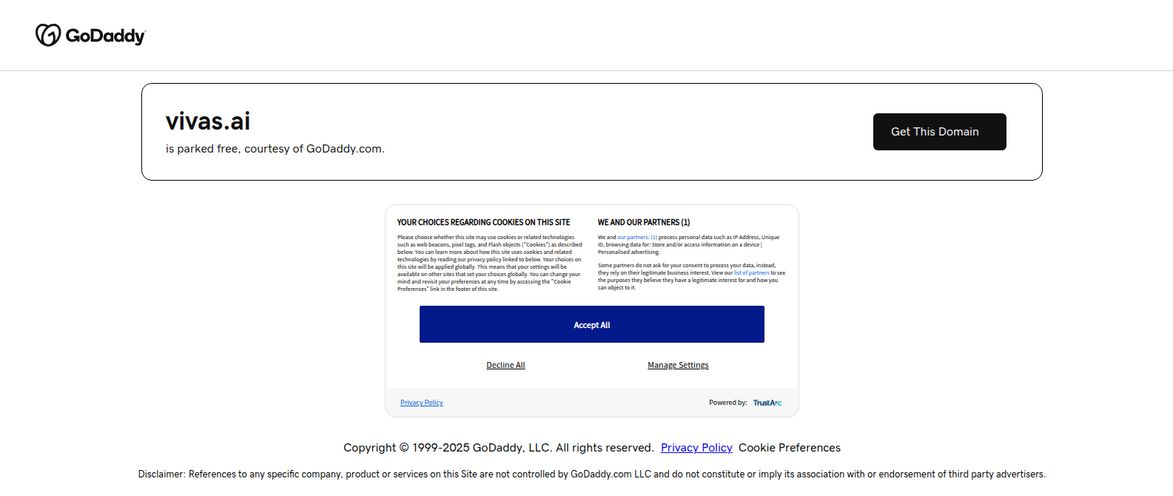If you've ever run an e-commerce site, an affiliate blog, or a price comparison platform, you know the pain. That soul-crushing, mind-numbing, carpal-tunnel-inducing pain of manual product data entry. I've been there, hunched over my keyboard at 2 AM, copy-pasting product descriptions, downloading images, and trying to decipher SKUs, all while the website I'm scraping from seems to change its layout just to spite me. It’s a necessary evil, a tedious chore that feels like it was designed by a committee of goblins who hate productivity.
For years, the solution was building your own scraper. Or hiring a dev to do it. And that opened a whole new can of worms: broken CSS selectors, IP bans, CAPTCHAs from hell, and constant, never-ending maintenance. Every time Amazon or Walmart tweaked a single line of code, your beautiful scraper would just... fall over. It was exhausting. I was convinced this was just the cost of doing business online. Then I stumbled upon something that felt a bit like finding a cheat code for the internet: Product Fetcher.
So, What Exactly is Product Fetcher?
Forget everything you think you know about web scraping. Product Fetcher isn't another clunky browser extension or a script you have to babysit. It's an AI-powered API. Think of it less like a brute-force tool and more like a data sommelier. You hand it a URL to any product page on the web, and it elegantly returns a perfectly structured glass of data: product name, price, images, reviews, descriptions, the works. All in a clean, predictable JSON format.
The magic here is the "AI-powered" part. It doesn't rely on those fragile CSS selectors that break if a developer sneezes. Instead, its AI understands the context of a page. It knows what a price looks like, what a description is, and where the main product images are, regardless of how the page is built. This means it adapts on the fly when sites get redesigned, saving you a world of headaches.

Visit Product Fetcher
How It Actually Works (Without the Geek Speak)
I'm an SEO guy, not a hardcore developer, so the term "API" can sometimes make my eyes glaze over. But the team behind Product Fetcher made this ridiculously simple. Seriously. It boils down to three steps:
- Grab a URL: Find the product page you want data from. Any page. Etsy, Rakuten, some obscure dropshipping site... you name it.
- Make the Call: You send that URL to the Product Fetcher API along with your unique API key. It's like placing an order at a restaurant.
- Get the Goods: Almost instantly, the API sends back all the product information, neatly organized and ready to use. No fuss, no mess.
That's it. You don’t have to configure anything, manage proxies, or solve a single CAPTCHA. It just works. It feels like the future we were promised.
The Standout Features That Caught My Eye
Okay, so it's easy to use. But what really makes it stand out in a crowded market of scraping tools? For me, it came down to a few key things that directly solve the biggest pains of product data extraction.
The AI That Just... Gets It
I mentioned this before, but it bears repeating. The fact that the AI adapts to website structure changes is a game-changer. I’ve wasted weeks of my life updating scrapers. Knowing that Product Fetcher handles that automatically gives me back time I can spend on things that actually make money, like creating content or optimizing my CPC campaigns.
A Special Nod to WooCommerce Users
This is huge. If you run a store on WordPress, you know how powerful WooCommerce is. Product Fetcher has a dedicated WooCommerce plugin that automates the entire process. You just paste a product URL into your WordPress backend, and it populates the title, description, price, and images for you. For affiliate stores or dropshippers, this could literally cut your product listing time by 90%. It's an incredible workflow enhancement.
Dodging IP Bans Like a Pro
Anyone who has tried to scrape data at scale knows the terror of the IP ban. Big e-commerce sites are smart; they know when a single IP address is making too many requests and they shut it down. Product Fetcher has built-in proxy rotation, meaning it cycles through a huge pool of different IP addresses for its requests. The websites you're scraping from never see it coming, ensuring a ridiculously high success rate.
Who Is This For? (And Who It Might Not Be For)
I’ve been singing its praises, but is this tool for everyone? Let’s break it down.
This is a fantastic fit for:
- Affiliate Marketers: Easily pull fresh, accurate product info and pricing to keep your review articles and product roundups up-to-date. This builds trust and boosts conversion rates.
- E-commerce & Dropshipping Stores: Onboard new products from suppliers in minutes, not hours. Especially powerful with the WooCommerce plugin.
- Price Comparison Platforms: The lifeblood of your business is accurate, real-time data. This API is tailor-made for that.
- Developers & Startups: Build an MVP or new feature that relies on product data without getting bogged down in building and maintaining a scraping infrastructure.
However, it might not be the perfect solution if you're a hobbyist scraping just one or two products a month, or if your business model relies on scraping millions of pages on an extremely tight budget. The request-based pricing, while fair, could add up for super high-volume users. But then again, if you're operating at that scale, the cost is likely a drop in the bucket compared to the development and maintenance costs of a custom solution.
Let's Talk Money: The Product Fetcher Pricing Breakdown
Alright, the all-important question: what does it cost? The pricing is straightforward and based on the number of API requests you make per month. I actually appreciate this model—you pay for what you use. No hidden fees, no surprises.
| Plan / Requests per Month | Price per Month | Best For |
|---|---|---|
| Up to 1,000 requests | $50 | Small projects or just testing the waters. Great value to start. |
| 1,000 to 10,000 requests | $100 | The sweet spot. Perfect for growing businesses and medium-scale affiliate sites. |
| 10,000 to 100,000 requests | $300 | For established businesses handling larger volumes of product data. |
| 100,000+ requests | Custom | Enterprise-level users who need a tailored solution and support. |
In my opinion, the value here is pretty clear. When I calculate my own hourly rate, the $50 or $100 I'd spend on this service is nothing compared to the time I'd save. Time is the one resource you can't get back, and automating this part of my work is a no-brainer.
The Potential Downsides: A Reality Check
No tool is perfect, and it would be dishonest to pretend otherwise. While I'm genuinely impressed with Product Fetcher, there are a couple of things to keep in mind. First, the pricing model, while fair, means you're paying per use. If you have a sudden, massive need for data, your costs could spike. It's predictable, but something to be aware of. Second, you are relying on a third-party API. While their uptime and accuracy seem rock-solid from my testing, you're still placing a core part of your data pipeline in someone else's hands. That's a trade-off I'm willing to make for the convenience, but it's a consideration for any business.
Frequently Asked Questions (FAQ)
- 1. What is Product Fetcher in simple terms?
- It's a service that automatically pulls product information (like price, name, and images) from any website link you give it. You get clean data back without any coding or maintenance on your part.
- 2. How is this different from traditional web scrapers?
- Traditional scrapers require you to manually identify parts of a webpage (using CSS selectors) and they break when the site's design changes. Product Fetcher uses AI to understand the page content, so it adapts automatically and also handles annoying things like IP blocks and CAPTCHAs for you.
- 3. Do I need to be a developer to use it?
- Not necessarily! If you use WordPress, their WooCommerce plugin makes it a zero-code experience. For other uses, you'll need some basic API knowledge, but their documentation is clear and the process is very simple—way easier than building a scraper from scratch.
- 4. Is it legal to scrape product data?
- Generally, scraping publicly available data is legal, but you should always respect the terms of service of the website you're scraping from. Product Fetcher is a tool; how you use it is up to you. It's primarilly designed for legitimate business uses like affiliate marketing and price comparison.
- 5. Can I try it before I buy?
- Yes, they offer 10 free API calls (or 'tokens') when you sign up. It's a great way to test it with a few of your target websites and see the quality of the data for yourself.
My Final Take: Is Product Fetcher the Real Deal?
Yeah, I think it is. For anyone in the e-commerce or affiliate space who is tired of the data entry grind, Product Fetcher feels like a breath of fresh air. It takes one of the most tedious, unreliable, and frustrating parts of the job and turns it into a simple, automated process.
It's not just a tool; it's a massive time-saver and a strategic advantage. You can keep your prices more competitive, your content fresher, and your product listings more accurate with a fraction of the effort. For me, the return on investment is crystal clear. If you've ever found yourself cursing at a spreadsheet full of product data, you owe it to yourself to give Product Fetcher a look. Your sanity will thank you.



